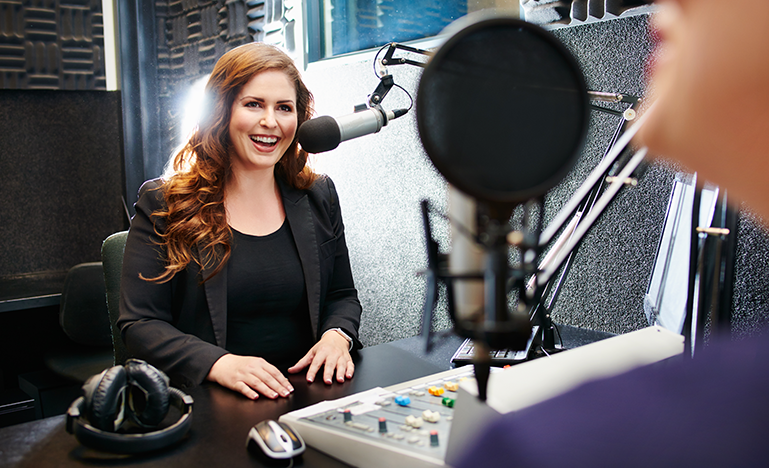Feeding the media
Building a media profile can enhance your profile and influence – if you know what journalists need.

If you are growing your own cannabis at home and you have a plant that’s over a metre tall, thank your lucky stars. Some late-game free legal advice may have kept the police from your door.
Before the federal government rolled out rules for the new legal recreational marijuana market about a year ago, it held committee hearings on the legislation. One of the people it heard from was Ottawa criminal lawyer Michael Spratt, who gave the government an earful over its plan to cap the maximum legal height of home-grown plants at one metre.
“The idea was just absurd,” says Spratt. “Imagine going away for the weekend and coming home to find that the marijuana plant in your back yard grew tall enough to break the law, and suddenly you’re facing charges.”
Thanks to objections by Spratt and others, the height cap was dropped from the legislation. Spratt’s opinion mattered to the Commons health committee because he’s a go-to source for comment on criminal law for Ottawa journalists. His media profile put him in a position to influence watershed legislation — the power of the press in action.
That power is something that all law firms – especially small ones and solo operations – can learn to exploit. Media appearances are less like advertising and more like auditions — a way to show prospective clients what you know.
“Media outreach is just the price of doing business,” says Taayo Simmonds, an Ottawa-based lawyer practising business and estate law at a two-person firm. “If we want to be known, people have to hear from us.”
Getting into the media isn’t a simple matter of cold-calling newsrooms, however — and it’s not without risks. The experts say there are a few things lawyers need to keep in mind when they’re dipping a toe in the media pool.
Getting started
“You have to understand that this is not a transactional relationship. To get coverage, the story must be legitimate,” says Jana Schilder, a former director of marketing at a major law firm who now runs her own legal communications consultancy in Oakville, Ont.
In other words, press releases don’t get you coverage — expertise does. A lawyer’s relationship with the media is based on what the reporter needs and what the lawyer knows. But the story comes first; for lawyers, the challenge is to put what they know in front of journalists working on deadline.
“The best frame of mind when doing media relations is to be of service — to be helpful to a reporter,” says Schilder. One useful shortcut, she suggests, is to set up a folder of Google alerts — “so you know whether your area of practice is blowing up in the news somewhere.” Offering commentary to the media is always going to be easier when you know reporters want that commentary right now.
For most lawyers, however, building a media presence takes time. Most media-active lawyers start by blogging, which serves a dual purpose: it lets journalists know what you know, and it helps you rehearse what you’ll say if they contact you.
“Criminal law is interesting to people who aren’t lawyers. So it’s easier to make media contacts when you’re a criminal lawyer than it would be for someone in, say, wills and estates law,” says Anne-Marie McElroy, a solo practitioner in Ottawa.
“I started blogging because I like this stuff and I wanted to write about it. I also wanted to use it to push my name out there online, which helps with (search engine ranking), which helps bring clients in.”
“Content is king,” says Spratt, who also has been blogging for years. “Push quality over quantity. Be timely. Be coherent.”
Simmonds runs a podcast. He chooses his guests for maximum audience interest; last month, he interviewed an NHL agent, and in September he spoke to a lawyer who represents amateur athletes facing doping allegations.
Risks and rewards
Talking to a journalist is not like addressing a judge or a jury. For one thing, it’s a lot quicker.
The swift and sudden nature of media contacts can catch inexperienced lawyers off-guard. Unprepared, they might wander off-topic — and be slightly horrified at how they’re quoted.
“When you’re answering a reporter’s question — and this is important — listen to the question,” says Spratt. “Rambling and running off at the mouth is a prescription for disaster.
“If you walk away from an interview and you don’t know what quotes the journalist is going to use, chances are you failed to speak clearly and concisely.”
It’s smart to prepare for press interviews the way you would for a court hearing — by writing down your arguments and fixing them in your memory. “It’s best to reflect on the key points you want to make in the interview going in, so you can stay on topic,” says McElroy.
Going “off the record” with a journalist can be perilous, says Schilder — especially if you don’t know the reporter well and can’t be sure you share an understanding of what “off the record” means.
“Journalists are not the enemy. That doesn’t make them your friends,” she says.
“If you don’t want it quoted, don’t say it. Sit down before you do an interview and write down what you want to be quoted on.”
When you’re talking to a journalist about one of your cases, be doubly cautious. Get the client’s permission first, and speak to them about how far you should go with the media.
“Lawyers are always risk-averse people, and we tend to be nervous about media contacts,” says Simmonds. “I find that talking it over with the client first goes a long way in dealing with that.”
Stick to what you know — and own up to what you don’t know. “Don’t extend yourself outside your area of expertise,” says Spratt. “Do that too far and you could fall afoul of law society rules, and even bring the administration of justice itself into disrepute.”
“Never make stuff up,” says Schilder. “Don’t exaggerate. If you don’t know how to answer a question, say so. Ask the reporter how long they have until deadline, then offer to get back to them with an answer.”
At the end of the day, every lawyer has to decide what kind of relationship they want to have with the media.
Spratt knows his outspoken approach to commentary, and his frequent appearances before Commons committees, close off certain career paths. (“A judicial appointment is out of the question should I ever be daft enough to seek one.”) But he says it’s worth it, because he gets to influence “the development of criminal law itself.”
For others, the sheer pleasure of engaging with journalists on fast-moving stories (and of making sure large firms don’t dominate the conversation) outweighs any other benefits.
“I’d get by without it. I’m not doing it for any immediate reward,” says Simmonds. “But the big firms always seem to dominate media commentary, and there’s no reason for it.”
“I don’t think I can draw a bright line between doing a media bit and getting a client,” says McElroy. “I know there have been times when clients have come into my office and said, ‘I really liked that thing you said on the radio.”


